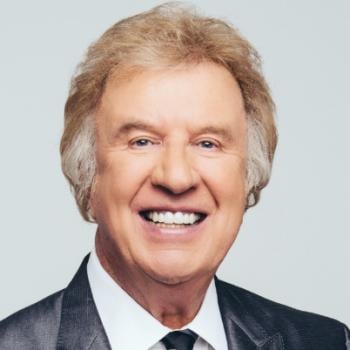Editors' Note: This article is part of a Public Square conversation on Civil Religion. Read other perspectives here.
I memorized the Lord's Prayer sometime between the assassinations of President John F. Kennedy and the Rev. Dr. Martin Luther King, Jr. I was four and a half years old when Kennedy was killed, reading the grief on my mother's face, and watching the salute of a little boy in short pants.
When King was killed, I was in fourth grade on a field trip. I spent that night hiding under my bed from bullets aimed at diffuse rage in Chicago city streets. My call to ministry was hewn in the misery of shattered hopes and dreams—in the space between Kennedy's New Frontier, Johnson's Great Society, and King's dream for racial justice, civil rights, and economic empowerment of the poor.
The dreamer said,
I have a dream that one day every valley shall be exalted, every hill and mountain shall be made low, the rough places will be made plain, and the crooked places will be made straight, and the glory of the Lord shall be revealed, and all flesh shall see it together...
Washington, Jefferson, Lincoln, Kennedy, Johnson, and King wove together the texts of our biblical tradition and the texts of the so-called American dream to articulate a theo-ethical vision of a healed nation. At the base of this articulation is a phrase from the prayer that Jesus taught his disciples when they asked how they should pray. In part it says, "Your kingdom come, your will be done, on earth as it is in heaven."
In Christian churches on the left, on the right, and in every place in between, we pray this prayer. We pray it on Sundays in worship, on Wednesday nights in Bible study and in fellowship times. We pray it in hospital rooms to comfort those who are sick and in funeral parlors to soothe those who mourn. We name our God as Holy Parent, just like Jesus did, and then we ask for it to be on earth as it is in heaven.
I admit that when I was young, I thought of heaven as not unlike Oz, over the rainbow; a place up in the sky where "troubles melt like lemon drops away above the chimney tops . . . ."
Now, my dreams of heaven conjure prophetic promises, like the one in John's Revelation.
See, the home of God is among mortals. He will dwell with them; they will be his peoples, and God himself will be with them. He will wipe every tear from their eyes. Death will be no more; mourning and crying and pain will be no more, for the first things have passed away (Rev. 21:1-4).
God will be so fully with the people that the old order of things passes away. Gone are ethnocentric ideologies that exclude some from the Promised Land. The greed that overrides kindness, and the violent taking of others' belongings as an exertion of raw power. The false sense that there is not enough for all in Creation to enjoy the more abundant life. The idolatry that assumes that what God desires is held in a vault by a few learned people who will in turn lord that over the masses and spew theologies that kill souls.
These ideas disappear in the full presence of God. Instead, humankind finds a new identity in the assurance of being God's people. We are partners with God in the healing of the world, in the coming of the bold new vision of peace and shalom for all. This peace is not just the absence of war but the presence of harmony and justice and abundant life.
The Lord's Prayer invites God's Reign to come fully, right this moment. It is aspirational and urgent. We often pray this prayer on automatic pilot, just as we make pledges about God and country and sing songs on the Fourth of July about independence and star-spangled banners. But, if we are conscious, when we say this prayer, we invite a revolution.
This is civil religion for me. And it will not always be civilized. We are called to heal the world, to radically welcome the stranger, and to make sure that everyone has enough. We are called to make freedom ring in the ears of the disenfranchised and the powerful, in every corner of the globe. This is work for the bold, the sassy, and the ones willing to wrestle with angels. It might be messy work. In the mess, we are called to love God with everything we have and our neighbor as ourselves.
Love, period. This is civil religion. Praying and acting for a healed world.
Like the two women in my church who decided to open a food pantry in their apartment in the Bronx. Like the fifty-five volunteers who make six hundred sandwiches for the poor every Sunday. Like the multi-culti bunch of folks who wore hoodies on a hot day to stand with Trayvon and protest the verdict. Like the people who go out to the Rockaways once a month to help rebuild in the wake of Sandy. Like the countless who blog, tweet, make petitions, march, and pray for justice every day in our congregation and in congregations across the nation.
Heavenly work on earth. Amen.
10/29/2013 4:00:00 AM




